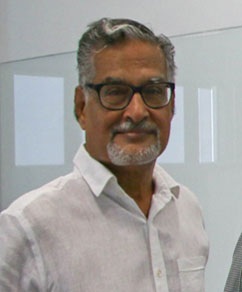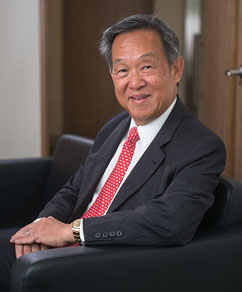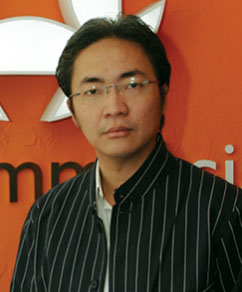TWO nights ago, FC Barcelona showed its resilience by clawing back from the greatest deficit in the Champions League. From 0-4 down in the first leg, they fought back to win the second leg 6-1.
No one expected it, but it should set us thinking about what the human spirit can achieve.
The world of business offers its own comeback kids too — Marvel, Nintendo, Apple and Netflix have had their stumbles in the past but rebounded to great success in recent years.
What about Singapore? Do we, as a nation, have what it takes to grind out results? Maybe not in footballing terms — maybe those glory days may return — but certainly as a country finding it place in a changing world.
We spent the last couple of years basking in the glory of SG50. While we have enjoyed celebrating past successes, it’s time to look ahead.
The US under President Donald Trump is making loud noises and acting unfriendly to foreigners. Europe is coming to grips with Brexit. China, which held the Singapore Armed Forces’ Terrex vehicles before returning them, has been making its own chess moves.
Singapore’s immediate neighbours are in various stages of progress, but are leveraging on the leapfrog effect that technology offers, and could be ahead of Singapore should the right circumstances present themselves.
How well can we cope in a time of flux, when the cost of living is rising, and we are expected to continue in that vein, when jobs are being lost and uncertainty fills the air?
Do we, as a people, have the fighting spirit to overcome our future challenges?
Can we turn a 4-0 disadvantage into a 5-6 winning game?
Troy Chin, Comic Book Artist

To put it simply — Yes. We are human beings after all and a fighting spirit is wired into us already, whether we like it or not. It’s only the amount that differs.
In the coming years, things will change at a much faster pace than we have been comfortable with in the past. And these changes will require us to disengage the autopilot on more occasions, if not completely.
Thankfully, humans have an uncanny ability to adapt, especially when it comes down to basic survival. We have gone through big changes in the past and we will continue to do so.
It might require you to stop checking Facebook once in a while to actually do work or to realise that you’re not always going to be able to buy that new iPhone every year, but you’ll live!
It’s very convenient to doubt the young and say things like millennials are soft and can’t handle hardship, but problems evolve with the times and they face a very different set of obstacles. Future generations will surmount these walls in their own way. They will have their own influences and role models. I don’t think we should be told who to look up to. Doing so will just maintain that singular path to success that is getting more irrelevant today.
Looking to the leaders to solve our problems has always been an odd notion to me.
Why would you put the outcome of your life in the hands of some people you don’t even know?
It’s illogical.
The government’s job is to make sure that outsiders don’t screw around with us and that our faecal matter is taken away when we flush it in our homes (totally worth the water price hike). That’s it. Everything else is up to us. They don’t owe us anything. We don’t owe them anything.
Remember that we are not all alone in this. Instead of looking within (which is physically impossible), how about looking around us. That’s immediate feedback right there. Figuring out where you are in the grand scheme of things should be the first priority. You won’t be able to improve if you can’t accept the reality of your position in the world. It’s not complicated. Just follow this ancient method called working really, REALLY hard. It seems legit.
PN Balji, Non-Executive Director, RHT Digital & Media

The gloomy cloud hanging over Singapore’s future may just be the perfect opportunity the country needs to see if it can be a bounce back king. With disruption becoming more and more the order of the day and with Singaporeans and businesses still looking to government to provide solutions, that
opportunity may not be grabbed. Money is being poured into innovation, old-style education is being overhauled and minister after minister is calling for a mindset change.
Yet change is not in the air.
Singapore’s problem goes back to a government-dictated system to fix problems, to get good economic growth. A population fed through a silver spoon is not going to change over night.
Many things need to happen: Government must cut off a 50-year-old apron string and let its people think for themselves, the schools must dump teaching systems that are not going to produce innovators, homes must allow children to chase their dreams and society must allow citizens to fail, get up and rise again.
So can Singapore do it? Yes, if it goes to the heart of the problem: Dismantle a system that is already showing signs of irrelevance.
Lim Soon Hock, Founder & Managing Director, PLAN-B ICAG

It requires more than a fighting spirit.
It is not enough to know the cause or objective, but more importantly, what it takes to achieve it. This means having a thorough understanding of the many issues and risks, as well as being open to alternative choices.
Leaders do not have all the answers to all the problems out there. In today’s VUCA (short for volatility, uncertainty, complexity, and ambiguity) and increasingly border-less environment, which demands teamwork and reliance on others for a successful outcome, a humble leader might perform better than one, who is self-righteous.
There is much collective wisdom out there, for leaders to tap, in order to overcome our future challenges.
For governments, it is imperative that they listen more and be less defensive.
Especially if they are to receive honest feedback, ideas, and solutions, even if they are contrarian, from the public or the constituents, whom they serve!
Roland Ong, CEO, IAHGames

We do have the fighting spirit! It is an evolutionary imperative. Humans are survivors, when push comes to shove we will evolve and we will persevere.
Our biggest challenge today is how we are adopting information technology. The way it has progressed over the last two decades is just a sign of things to come in the future. Even today, we live in a completely different time — from social media to the apps we use that have become indispensible to our lives.
The way we get information has completely changed too, with new media, and we have yet to sufficiently cope with it.
We need to understand and learn how to decipher and analyse the overabundance of information that is now available to us. The challenge for the audience is to learn how to distinguish reliable information from the noise and not be swayed by rumours and disinformation. We now have to learn very quickly how to recognise fallacies, examine information with logic, and use it to determine our actions.
We may be a highly educated society, but yet we don’t often know what’s really happening out there.
Conversely, the challenge for governments is to find new ways to manage information flows. Institutions have lost the power to ‘control’ information and they need to live with that. The gatekeeper models of yesteryear are no more relevant today.
Someone has to take the lead to address these issues. Naturally we look to the state for guidance. For the last 50 years, Singapore has been ruled over by a paternalistic government and they continue to have a responsibility to the people.
You might also want to read:
Is Singapore A Sporting Nation?
Can Singapore Cultivate Music Talent?
Main Image: Belozorova Elena / Shutterstock.com



















